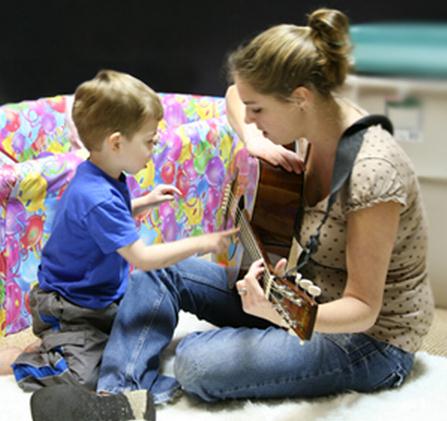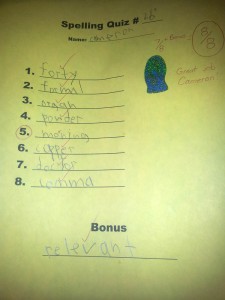For a long time in my life, I was very depressed. I wasn’t going anywhere, doing anything, I had no goals and worst of all, I felt that my life simply had no chance of ever getting better than what it was at the time.
Then I got married.
Strange huh? To go from depressed to married. Well, there was a lot that happened in between but those stories aren’t what’s important right now.
What is important is the vow I made. You know, the vows we all make through marriage… “good times and in bad, in sickness and in health”… I took those vows seriously. More so than that, I paraphrased them and made them my own new life motto: “Make the best of it.”
When my son was diagnosed with autism, I made the best of it. When my wife was pregnant with our second child and had to spend 6 months of it on bed rest, I made the best of it. When my wife was diagnosed with fibromyalgia and could barely get off the couch, I made the best of it.
People told me I would crack, have a nervous breakdown or worse, leave… I didn’t. When people asked how I handle the stress, I told them that I just take one day at a time and I, of course, make the best of it.
Now those days are behind me and my wife is gone. Our children are being split between us 50/50 where I get them for one week and she gets them for one week.
I’ve been with my kids almost every day since their birth and even more so in the last 5 months. With their mother working extra hard, my boys and I were glued together (other than school) every single day.
And after 5 months of that, they’re gone for the week. And this house feels ever so quiet now. No wife. No kids. Not even the dog.
So what do I do?
Well, I’ve been eating some foods that I haven’t had in years, due to the wife’s healthy diet, my son’s gluten free diet and our lack of budget. I’ve been watching movies I have been dying to see. I’ve been playing video games that I haven’t touched in almost a year. I’ve been reading and learning new skills in my field of expertise to better myself.
I posted some pictures on Facebook to which one person replied “you’re not supposed to be enjoying this! lol”
And I got to thinking.
She’s right. I’m not supposed to be enjoying this. What I’m supposed to do is feel alone and quiet and maybe even sad. After all, I do miss my boys tremendously right now. My wife too, but more so my boys since we were together so often for the last 5 months… just the 3 of us.
But why? Why do to that to myself just because I’m “supposed to?”
I thought back to the bed rest, the diagnosis, the struggles with money, the decisions and sacrifices we’ve made and I thought to myself… no, I’m not going to do what I’m supposed to do.
I’m going to make the best of it.
I have the house to myself, I’m going to keep myself busy in the best way I know how and when the week is up, my boys will come back to me. And again, during that short week that I get them… I’m going to make the best of it again.
The way I see it is, when times get hard or life throws mud in your face, you have 2 choices:
1. Do what you’re supposed to do and let it get you down.
2. Make the best of it.
It’s kind of like that whole “when life gives you lemons…” cliché, except, I’m going to make myself a steak and watch a good movie with my lemonade.
Because life is to short to do what you’re supposed to.
Instead, make the best of it.
One day you’ll look back on your life and be glad that you did.














